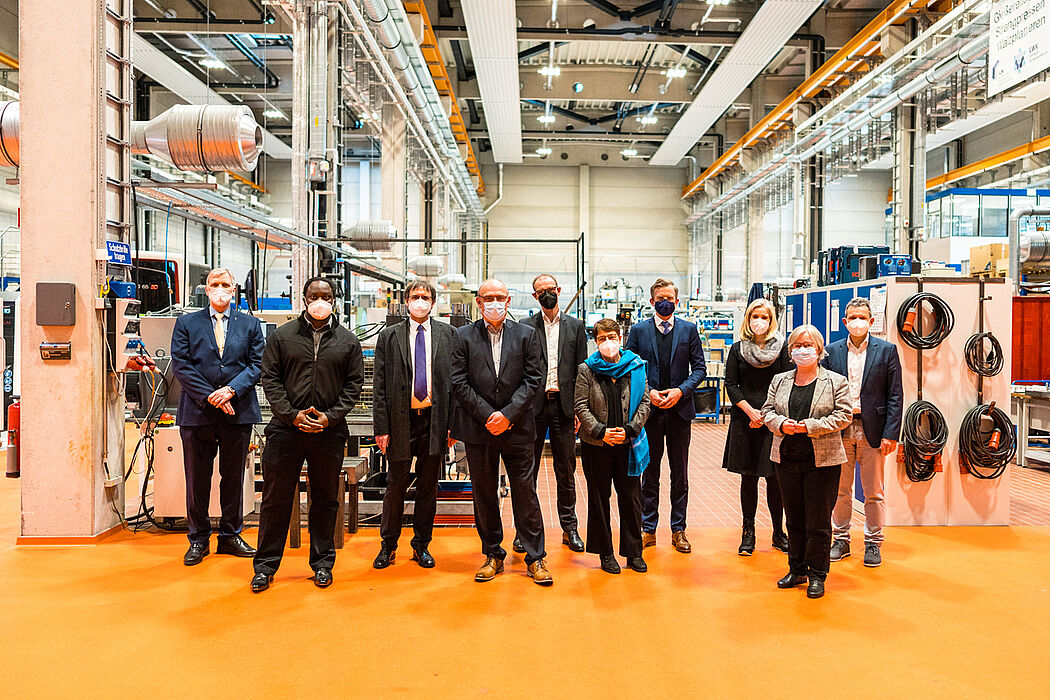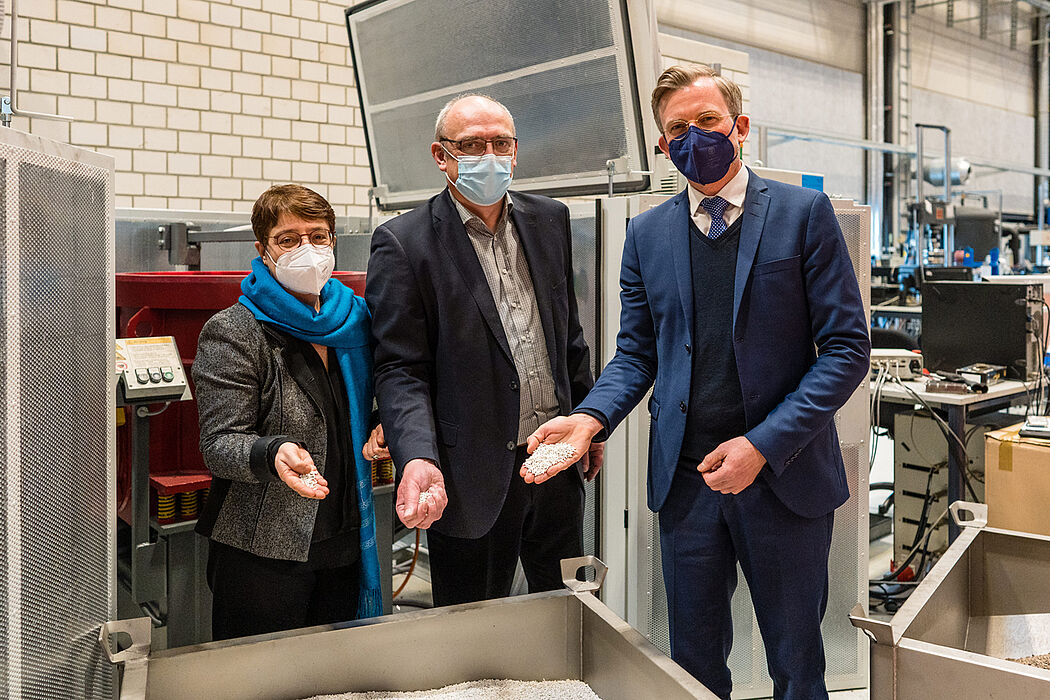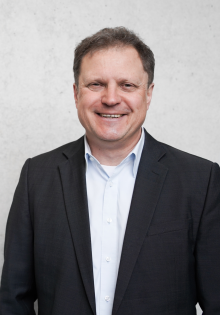On his first visit to Paderborn University, the new State Secretary of the North Rhine-Westphalia Ministry of Culture and Science (MKW NRW), Dr Dirk Günnewig, talked with members of the Executive Board and a number of the university’s researchers about the university and its research profile, including, in particular, Paderborn’s collaborative approach to research and teaching and to projects with external partners. Dr Günnewig was full of praise, stating: “The university is tackling key priorities for the future that address important issues for our society.”
The President of Paderborn University, Dr Birgitt Riegraf, gave the State Secretary an insight into the structures and core interests of the university’s five cross-faculty key research areas. “In addition to basic research, thanks to strong interdisciplinary links and funding from the state, we’re also able to engage in lighthouse projects, such as the International Research Centre for Photonic Quantum Computing and the Excellence Start-Up Centre,” she added by way of example.
Understanding synergies in the energy and transport transitions
Professor Thomas Tröster, Chair of the Institute for Lightweight Design with Hybrid Systems (ILH), presented the ‘New Mobility Paderborn’ (NeMo Paderborn) initiative, which recently gave rise to the association of the same name. Paderborn University and six other partners from industry and the public sector are among the founding members. The goal is to develop a climate-friendly, user-oriented networked concept for mobility in rural areas. Here, too, interdisciplinary thinking plays an important role. “If we’re to make progress in mobility research, we need to look at developments in energy systems, vehicles and the digital transformation as a whole,” explained project initiator Tröster. The vision is to create a model region for mobility in Germany, in co-operation with almost 80 partners from East Westphalia-Lippe.
To make such a system accessible to as many people as possible, lower energy requirements and cost-effective vehicle systems are necessary – prerequisites that can be met with the help of lightweight design. Professor Mirko Schaper, Dean of the Faculty of Mechanical Engineering, gave Günnewig a tour of ILH’s design hall, which opened in 2019. The equipment here facilitates interdisciplinary research on sustainable materials, processes and products, one of Paderborn University’s five key research areas.
Multidisciplinary approach to artificial intelligence research
With his focus on ‘artificial intelligence’ (AI), Professor Axel-Cyrille Ngonga Ngomo from Paderborn’s Department of Computer Science is researching another future-relevant issue. Professor Ngonga Ngomo presented a variety of the university’s projects in this area to the State Secretary, detailing the criteria necessary for secure and reliable data processing. Linking different disciplines and collaborating with other universities and business partners also plays a central role here, whether in the ‘it’s OWL’ cluster of excellence, whose developments include a digital marketplace for AI applications, or the collaborative research centre/Transregio (TRR) 318 ‘Constructing Explainability’ on the subject of ‘The explainability of artificial intelligence’.



